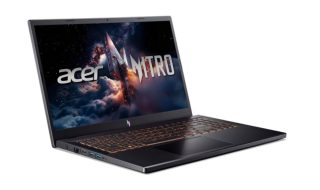According to IDC’s Quarterly Personal Computing Device Tracker, India’s traditional PC market recorded 4.49 million unit shipments in Q3 2024, marking a slight 0.1% year-over-year (YoY) growth. The traditional PC market includes sales of desktops, notebooks, and workstations.
Desktop sales declined by 8.1% YoY, but sales of notebooks and workstations helped the market to recover. Sales of notebooks and workstations grew by 2.8% and 2.4% YoY, respectively. Premium notebook sales also saw a notable 7.6% YoY increase in sales. The consumer segment saw a 2.9% YoY decline
HP retained its market leadership with a 29% share. It also leads in both commercial and consumer markets with 34.3% and 24.8% market shares, respectively. Its enterprise demand grew by an impressive 30.2% YoY. HP shipped 1.05 million notebooks and achieved its third-best quarter to date.
Lenovo ranked second with a 17.3% market share. It has a 20.3% share in the commercial market due to a good number of enterprise orders. Lenovo also saw 3% YoY growth in the consumer segment.
Dell managed to grab a 14.6% share and recorded 14.9% YoY growth. It also captured a 20.8% share of the commercial market but saw a 5.4% decline in the consumer segment. Acer saw shipments rise by 26.2% YoY. The company led the commercial desktop market with a 30.2% share and experienced a staggering 38% YoY growth in consumer shipments.

Asus is fifth with a 9.7% share. It captured a 16.2% share of the consumer market and also achieved 5.5% YoY growth in the commercial segment.
The overall performance of India’s traditional PC market in Q3 2024 shows a stable yet competitive landscape. Festive sales in late 2024 have already boosted consumer shipments, and this momentum could carry forward if brands continue offering attractive discounts and promotions. On the commercial side, large enterprise and government orders are likely to drive growth, especially for desktops and notebooks.
Looking ahead, the market dynamics are expected to be shaped by enterprise investments, consumer demand, and increasing adoption of premium notebooks. Brands focusing on competitive pricing, bundled offers, and catering to emerging needs like gaming and remote work solutions will likely continue to capture market share.











